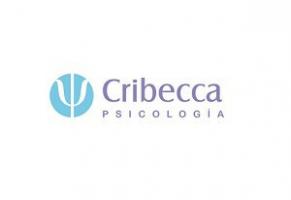Irrational Romanticism: An Outdated Idea?
To what extent is it true that healthy relationships should be based only on pure feeling?
Several studies support the idea that a malfunction in a couple It is related to the cognitive processes that originate our internal dialogue. Cognitive processes are those that mediate between the events that occur in a couple relationship and the consequences (emotional, cognitive and behavioral) of said situations.
From this it can be inferred that the things our partner does do not disgust us for themselves, but for our way of thinking about them. It is possible that throughout a sentimental relationship one has said to himself:
"He only thinks of himself!" It should not be like that.
Actually, this is an example of a way of thinking produced by inappropriate cognitive schemata on the couple that will have a negative impact on the quality of the relationship.
Cognitive processes and the quality of love relationship
Some examples of inappropriate ways of thinking are produced by the following processes:
- selective attention: It is a process that refers to which aspects receive more attention within the relationship. In conflictive couples, attention tends to focus on the other's negative behaviors.
- attributions: characterized by the way in which the couple is held responsible for events.
- Expectations: They refer to the beliefs about the behaviors that are expected in a relationship. When the difference between expectation and reality is high, greater dissatisfaction in the couple.
- assumptions: are the beliefs about the nature of intimate relationships and the behaviors of the couple that have an impact on the relationship by attributing a series of traits to it that determine the way in which interacts.
- standards: are processes learned throughout life about the characteristics that couples "should" have. This implies dissatisfaction and disappointment in the face of discrepancies between the ideal and the ideal couple.
Two levels
The two cognitive ways of thinking about the couple that we have seen before are divided, in turn, into two levels of analysis: automatic thoughts and cognitive schemes.
automatic irrational ideas
The existence of automatic thoughts is inevitable, but some can arise to harm the interactions with the couple. The latter are the ones that are sought to be modified first in therapy, since certain typical ideas born from irrational judgments pose a risk to happiness as a couple.
Some examples of automatic thoughts are:
- It must be the ideal companion.
- Disappointing the other would be horrible and would lose personal validity.
- My interests and needs must revolve around my partner, and/or yours around me.
- If something displeases me, it is preferable to remain silent than to break our harmony.
- We must agree above all on those issues that are important or significant to me.
- Disagreements are destructive: you cannot live happily with different points of view on some issues.
- The other is going to provide me with the happiness or satisfaction that I need.
- We have to share everything.
- With the other I will be so happy that I will be able to abandon other interests or other relationships.
- I have to be totally invested in achieving the happiness of the other.
- We should never argue.
- Since my partner loves me, he has to know my thoughts and desires without my having to communicate them to him.
- My partner cannot change, it is how it is.
- Men and women are different in terms of the needs they expect their partner to meet.
- If he doesn't pay attention to me, it's because he's no longer interested in anything.
- If I don't feel jealous in my relationship, it means that I don't really love that person.
- Love can do everything, if we really love each other nothing can go wrong.
- If you're in love, you can't like or be attracted to other people.
Cognitive schemas
On a second level are the beliefs or philosophical pillars that are called cognitive schemas from which the above thoughts derive. Some examples:
- strong need for love: This idea emphasizes the need to feel loved in order to value oneself.
- Demands and demands: refers to the absolutist idea of unconditional support and the idea that there can be no mistakes or incompatibilities in a loving couple.
- Philosophy of punishment and/or guilt: leads to thinking that the other person should feel guilty if they do something wrong and, therefore, punish them for it.
- Catastrophizations: It is about the belief that it is terrible that things do not go as one wants.
- Low tolerance to frustration: refers to the idea of not being able to bear problems, and therefore fear of being hurt. Under the optics of this scheme, one demands a relationship without problems but immediate results.
- Emotions are uncontrollable: refers to the idea that happiness or unhappiness is achieved through the other couple.
recapping
On the other hand, the way in which a couple lives their relationship will be determined both by the peculiarities of each spouse (affective style, history of learning, experiences in previous romantic relationships, etc.) as well as in the sociocultural context (gender roles, cultural expectations, etc.).
All these features will be influences on the interaction and quality that is created in the couple. In short, modifying these cognitive aspects from a rationality used to achieve well-being in the couple is not only possible, but very useful.
It may interest you: "The 7 keys to having a healthy relationship"

